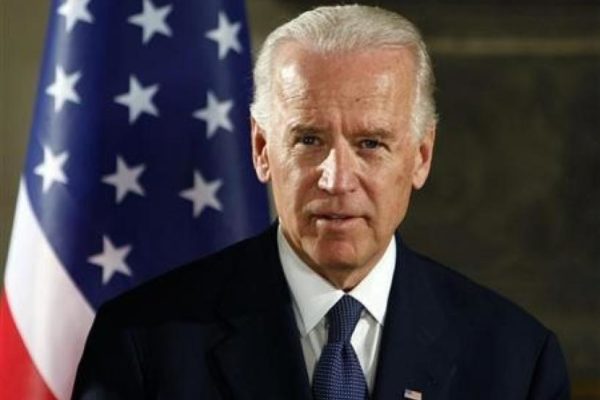WASHINGTON—Arkansas and Missouri voted to raise the minimum wage, and Scott Walker and Bruce Rauner, two of the nation’s most anti-union governors, were defeated for re-election.

Those were bright spots for labor on a night where Democrats took control of the House, gaining more than 25 seats, but Republicans retained control of the Senate, unseating at least three Democratic incumbents.
In Arkansas, voters approved Ballot Issue 5, which will raise the state’s minimum wage from $8.50 an hour to $11 by 2021, by a margin of more than 2 to 1. Missouri’s Proposition B, which will bring the minimum from $7.85 to $12 in 2023 in increments of 85 cents a year, passed with about 60% of the vote.
“With the level of poverty in our state, this is really just a common-sense answer for Arkansas. People working full-time shouldn’t struggle to meet their basic needs, and the numbers show that voters agree,” Arkansans for a Fair Wage campaign manager Kristin Foster told LaborPress. The group estimates that the measure will raise wages for more than 300,000 Arkansans, one out of four workers in the state, over the next three years.
Wisconsin Gov. Scott Walker, who pushed through legislation eliminating most collective bargaining for public-sector workers and outlawing the union shop, lost his bid for a third term. Absentee ballots from Milwaukee put his Democratic challenger, state Superintendent of Public Instruction Tony Evers, ahead by about 30,000 votes. Evers won more than 80% of those 45,000 ballots, and carried Milwaukee by more than 2–1.
Walker has not conceded and is expected to demand a recount.
The Service Employees International Union said its members, together with Fight for $15 and a Union activists, knocked on the doors of 230,000 Wisconsin voters campaigning for Evers, who supported raising the state’s minimum wage from $7.25 an hour to $15. The union said it focused “on infrequent voters of color from low-income communities whose turnout dropped significantly in the 2016 election.”
Wisconsin ironworker Randy Bryce lost his bid to win outgoing House Speaker Paul Ryan’s old district south of Milwaukee, getting only 43% of the vote.
In Illinois, Gov. Bruce Rauner, who spent most of his four years in office battling public-sector unions, lost a battle of billionaires to Democratic challenger J.B. Pritzker by a 3-2 margin. Rauner had attempted to impose contract terms on state workers unilaterally, introduced a bill to prohibit them from collective bargaining, and filed the original version of the lawsuit that resulted in the Supreme Court’s Janus decision.
In Michigan, former state Senate Minority Leader Gretchen Whitmer, an American Federation of Teachers member who wants to repeal the state’s 2012 law banning the union shop, defeated Republican state Attorney General Bill Schuette, who argued that the law gave workers “freedom.”
“By electing Whitmer, voters repudiated the DeVos agenda of defunding and decimating public schools in favor of an unaccountable charter model that took root in Michigan and failed to help kids,” AFT President Randi Weingarten said in a statement.
But in Iowa, Republican Gov. Kim Reynolds, who eliminated overtime pay for 2,800 state workers and backed the 2017 law that required public-sector unions to be recertified every time their contract expired, narrowly won a full term. Democrats won three of the state’s four House seats, a gain of two. The sole GOP survivor was Rep. Steve King, sponsor of bills to outlaw the union shop nationwide and to repeal the federal prevailing wage, and arguably the most outspokenly racist member of Congress. He held his seat over former minor-league baseball player J.D. Scholten.
Union-backed Democrats also lost in Ohio, Florida, and Georgia. But voter-suppression advocate Kris Kobach was upset for governor of Kansas by Democrat Laura Kelly, who was endorsed by SEIU Healthcare Missouri Kansas.
SEIU United Healthcare Workers West also supported ballot initiatives in three states that will expand Medicaid under the Affordable Care Act, extending coverage to people under 65 whose income is up to 138% of the federal poverty line. Idaho passed it by a 3-2 margin, and Utah and Nebraska approved it by narrower votes.
But in Montana, Initiative 185, which would have levied a $2-a-pack tax on cigarettes in order to continue the expansion of Medicaid beyond 2019, was trailing in early returns. The lobbying arm of Philip Morris’s parent company spent more than $12 million opposing the measure, according to the Becker’s Hospital Report trade journal—about $20 per voter.
In Massachusetts, an initiative that would have set minimum nurse-to-patient ratios for hospitals lost badly, with about 70% of voters opposing it. The Massachusetts Nurses Association backed the measure, which would have required one nurse for each patient under anesthesia and for women who were either in labor or had just given birth. Hospital trade groups opposed it, contending that it would cost too much.
MNA President Donna Kelly-Williams said she was “disappointed” by the result. “There are nurses caring for too many patients and those patients are unnecessarily being put in harm’s way,” she said in a statement. “And the problem continues to grow every year. The status quo is not a solution here.”



